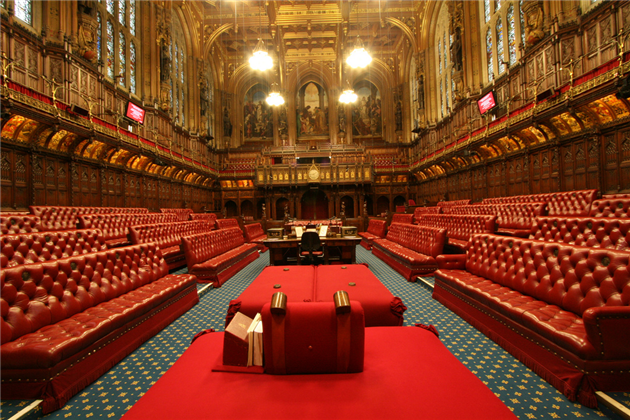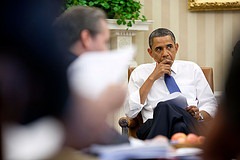
Churchill said “Democracy is the worst form of government, except for all those other forms that have been tried from time to time.” and since then we seem to have given up trying to find a better one. Twiddling with the mechanics of voting doesn’t count.
My idea: Legislative Service. This is modeled on Jury Service only instead of judging a person you’re asked to judge a proposed bill. In your typical bicameral system of government the Legislative Service would replace the upper house. The Senate in the US, The House of Lords in the UK.
In a US version 101 citizens would be randomly drafted for each bill. The pros and cons of the bill would be presented in an adversarial environment, much like a jury trial. The citizen legislators would then vote anonymously and either pass the bill or send it back to the House of Representatives. The President would retain the right to veto a bill.
Such a system would castrate the malign influence of money and lobbyists in the political system. It would also improve engagement as more citizens take part or talk to friends and family who have served.
You would still have professional legislators who would be responsible to their constituents. They’d just have a harder time adding pork and returning favors. Each bill would need to be palatable to a majority of average citizens.
Possible objections:
People dodge jury service all the time. Wouldn’t you end up with a similar problem? I don’t think so. Legislative Jury would be far more prestigious.
Isn’t the average voter too stupid to understand complex legislation? You are the average voter. In any case, the adversarial system would give both sides a chance to both argue and explain. Expert witnesses could be called. Ballot measures that are voted on by the entire electorate suffer from this problem as money is spent to over-simplify and obfuscate. In Legislative Service you’re taking a representative sample of the electorate and giving them the time and help needed to make a serious judgment.
It’s unconstitutional! This would require a constitutional amendment.
What about knee-jerk legislation? Tyranny of the Majority? Hopefully this system would help to put a brake on hasty and ill-thought through bills. The President would retain veto power and the Supreme Court would be able to annul unconstitutional decisions and so sufficient checks and balances would remain in the system.
Of course getting rid of The Senate isn’t going to happen overnight. I can think of a couple of ways to start moving in the right direction.
Firstly, this plan is just as applicable at the state level. My state, California, is a mess and this proposal could help. There are rumblings about holding a constitutional convention and if this happens I want us to ditch ballot initiatives and replace the State Senate with Legislative Service.
Secondly, and more plausibly, what about setting up Legislative Service as a non-profit to look at each bill and vote on it but without the actual power of preventing bad bills from being enacted? A sort of non-partisan citizen think tank. If any of my billionaire readers are interested get in touch.
I’ve been mulling the idea of Legislative Service for quite some time, but especially following the atrocious reform of the British House of Lords in 1999 resulting in an upper house composed of appointed peers, a handful of hereditary peers and a few bishops. This threw the independent oversight baby out with the unelected toffs bathwater. Since 1999 I’ve lived in California and my revulsion for the US political climate keeps growing. Serious change is needed. I think Legislative Service is it.
Add your comment...
Related Posts
(All Politics Posts)
(Published to the Fediverse as:
Legislative Service #politics #politicalreform #churchill #democracy #legislativeservice #california Legislative Service is a form of political reform where the upper chamber is replaced by a jury like process to approve legislation.
)








